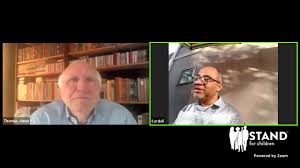by Jimmie Covington
Within a few weeks, Shelby County officials and the Shelby County Board of Education will be submitting proposals on budgets for the new fiscal year that starts July 1. Let’s take a look back at what happened last year.
The property tax rate proposal presented by then Shelby County Mayor Mark Luttrell last spring reduced the allocation going to schools by five cents and the portion going to debt service by seven cents while increasing the county general fund’s part by six cents.
It was adopted by County Commission members and resulted in a six-cent reduction in the property tax rate from $4.11 to $4.05. There were no reports in the media that county school leaders and supporters voiced any public objections to the cut in the rate for schools.
Officials cut the overall tax rate to comply with a state anti-windfall requirement that affects taxes after a property reappraisal.
Luttrell during his time in office presented a proposed tax rate and general budget proposal that included school funds although neither state law nor the county charter gives the county mayor any authority to make any recommendation on school funding. The practice was started by A C Wharton, who preceded Luttrell as county mayor.
The proposed amount for schools each year set a cap on the amount of funds schools could receive.
If there is a county attorney’s opinion backing such an approach, it has never been presented to the public.
The county charter says the charter does not apply to the county school board, the superintendent or school funding for any purpose. The county school board budget goes directly to the County Commission and does not pass through the mayor. State law requires that the suburban municipal school systems receive a share of all funds the county provides for county schools based on average daily attendance.
The parts of county government that the mayor heads are in competition with schools for county funding. One can argue that it is a conflict of interest for the county mayor to make a recommendation that would cap the amount of county funding that schools receive.
The charter calls for the mayor to present a consolidated budget request covering all areas outside of schools. Nowhere does it say that the mayor also is to present a tax rate proposal. Setting the tax rate is totally in the hands of the commissioners.
To be more specific about what the county mayor’s tax rate proposal last year did: It shifted all of the five-cent anti-windfall recapture rate cut to the portion of the tax rate that was allocated to schools. None of that five-cent cut was applied to the general fund and debt service portions of the tax rate that fall within the county mayor’s responsibility. (The six-cent total rate cut included one cent from the debt service cut.)
The county’s general fund got to keep all the windfall revenue it received from the 2017 tax rate and in addition got an increase from the shift from debt service.
(The city’s major news media never understood what was happening and never reported it to the public.)
The 2017 county property tax rate breakdown: General government, $1.43; debt service, 69 cents; schools, $1.99.
The 2018 county property tax rate breakdown: General government, $1.49; debt service, 62 cents; schools, $1.94.
The failure of the Shelby County School Board and the county schools superintendent to object to the actions of the county mayor and County Commission in shifting all of the anti-windfall tax cut to schools reflects a leadership failure on the part of the school officials.
Were they afraid to challenge the county officials for some reason or did they just not know enough about school and county financing to understand what was happening?
It will be interesting to see what happens this year with a new set of county officials and several new school board members and a new schools superintendent in office.
This post is written by Jimmie Covington, veteran Memphis reporter with lengthy experience covering governmental, school, and demographic issues. He is a contributing writer with The Best Times, a monthly news magazine for active people 50 and older.
***
Join us at the Smart City Memphis Facebook page for daily articles, reports, and commentaries relevant to Memphis and the conversations that begin here.





Ignorance, lack of press coverage and advocacy are all enablers of the current “decline by design” state of affairs in Memphis. Much of which has been authored from the top of the ecosystem……